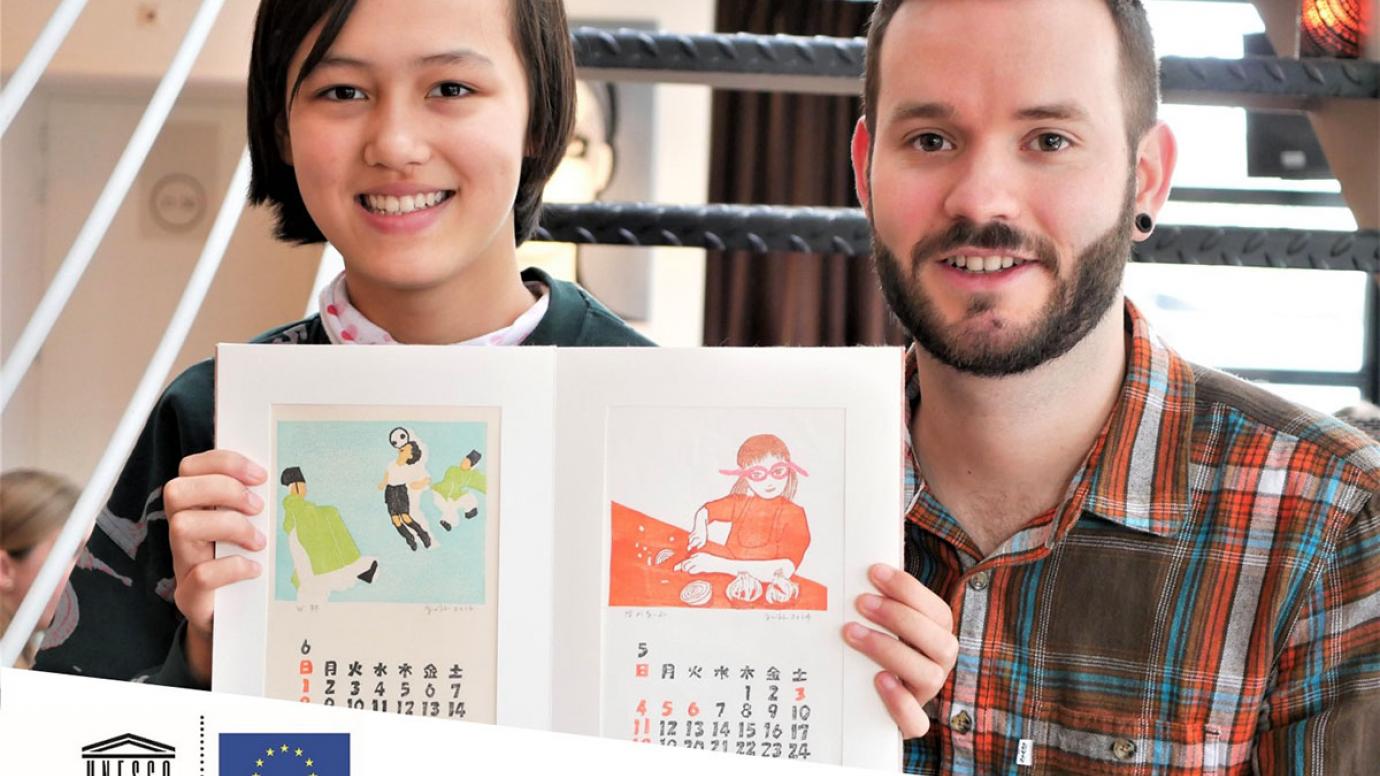88% of European citizens agree that Europe's cultural heritage should be taught in schools, since it tells us about our history and culture. This is according to a 2017 Eurobarometer survey on the subject.
To support this, the European Commission raises awareness of Europe’s cultural heritage through education and maximises the impact of the Erasmus+ programme within this field.
Heritage education
The basic idea of heritage education is to offer opportunities to engage in experiences to learn new concepts and skills. By directly experiencing or analysing cultural heritage, learners gain knowledge, intellectual skills and a wider range of competences on issues such as cultural heritage maintenance or societal well-being.
Supporting heritage education was one of the objectives of the European Year of Cultural Heritage and it is still pursued through the European Framework for Action on Cultural Heritage.
Several initiatives and resources focus on teaching cultural heritage in school:
E-twinning
E-Twinning is the community for schools in Europe.
Teachers looking for an introduction to heritage interpretation and learning can read the online eTwinning book 'Learning from the past, designing our future'. It includes
- 20 ideas and activities on how to introduce cultural heritage in classes
- 24 examples of inspirational eTwinning projects (for students between the ages of 3 and 19)
- examples from the eTwinning schools which are members of the United Nations Educational, Scientific and Cultural Organization (UNESCO) Associated Schools Network
Find out more about E-twinning.
School Education Gateway
School Education Gateway is Europe’s online platform for school education. From dedicated workshops to information sharing, it helps include cultural heritage in education activities in schools across Europe.
Find out more about School Education Gateway.
Toolkit for teachers
This toolkit was developed during the European Year of Cultural Heritage.
Find more learning materials in the learning corner.
Highlighted projects
Dive Into Heritage
Through this project, developed under the European Year of Cultural Heritage, volunteers took part in training, meetings, trips and other activities. They learned to recognise the richness of culture and to take responsibility for the protection, maintenance and transfer of heritage to future generations. The European Union funded this project under the Erasmus+ programme.
Find out more about the Dive Into Heritage project.
Engaging Youth for an Inclusive and Sustainable Europe
This joint EU-UNESCO project helps schools to map intangible cultural heritage existing in the school community and to integrate it in learning curricula. Pilot projects were implemented in 10 schools, under the guidance of a UNESCO trainer. Based on the results of a survey conducted in the schools and on the lessons learnt from the projects, materials to support teachers in integrating intangible cultural heritage in curricular and extra-curricular activities will be available soon.
Visit the project’s website and have a look at the videos and other materials.
INCREAS
This project is focused on increasing employment opportunities and fostering the idea of sustainable cultural heritage in Europe. Project participants are developing innovative and creative educational solutions for the cultural heritage sector, like digital skills modules, workshops, study visits, and a structured peer-to-peer exchange programme.
Moreover, they will set-up a prototype of the European Competence & Community Centre for Heritage Assets (EUComp-Centre) in Austria that focuses on built heritage competences. The European Union is funding this project under the Creative Europe programme.
Find out more about the INCREAS project.
CHARTER
“Cultural Heritage Actions to Refine Training, Education and Roles” (CHARTER) aims at identifying and bridging the skills gaps between the educational and the occupational worlds, by developing a matrix mapping skills and competences in the heritage sector. It will also create a sectorial skills strategy through the development of a road map for the cultural heritage sector.
The European Union is co-funding this project through the Erasmus+ programme, under the Sector Skills Alliance - Blueprint for sectoral cooperation on skills.
Find out more about the CHARTER project.
For more project examples, check Erasmus + project results platform.



